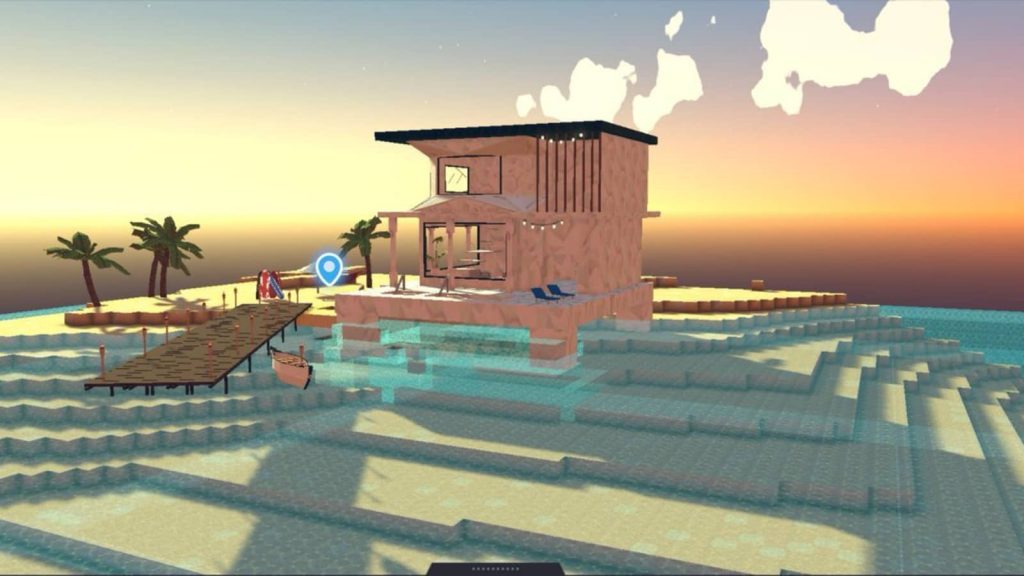Recently, Justin Bieber performed in a musical concert, although it was not held at a physical place. Instead, this concert took place in the metaverse, an online environment that transforms the corners of the internet into immersive, four-dimensional experiences.
Fans from all across the world tuned in to see Mr. Bieber’s avatar play tracks. Investors were also paying attention. They are buying up music halls, shopping complexes, and other properties in the metaverse in preparation for a digital land boom that appears to be just months away.

When Mark Zuckerberg announced that Facebook would be renamed Meta to profit on the digital frontier, interest in space skyrocketed. The metaverse is made up of many different digital domains. Each resembles a three-dimensional virtual metropolis where avatars live, work, and play. These locations are familiar to popular video games like Fortnite, Animal Crossing, or the Roblox universe. Each employs virtual reality, streaming video, mobile games, avatars, and artificial intelligence to create immersive digital experiences.
However, metaverse real estate investing remains very risky, and no one can say if this boom is the next big thing or the next big bubble. Nevertheless, technologists anticipate the metaverse will mature into a fully functional economy in a few years, providing a synchronous digital experience as integrated into our lives as email and social networking are today.

The blockchain is a digitally distributed public database that eliminates the need for a third party, such as a bank, and runs banking in these virtual worlds, and bitcoin is the money of choice. In addition, anyone entering a virtual environment can buy or exchange non-fungible tokens, or NFTs, which are blockchain-based assets that are digital representations of real-world goods for art, music, and even homes. The NFTs or non-fungible tokens is unique document that serves as proof of ownership.
You might be wondering why a firm would want to invest in a virtual office in the metaverse. According to Michael Gord, a co-founder of the Metaverse Group, skeptics should look at the trends triggered by the pandemic.
“As more people participate, it’s where you’re going with friends, where you’re having experiences like conferences and concerts,” he said. “It’s inevitable that the metaverse will be the No. 1 social network in the world.”

The Metaverse Group has a real estate investment trust and is looking to build a range of investments in Decentraland and other domains like Somnium Space, Sandbox, and Upland. Although the internet is unlimited, virtual real estate is confined. For instance, Decentraland comprises 90,000 property units, each measuring 50 feet by 50 feet. Mr. Gord believes that those pixelated hills contain gold.
Mr. Kiguel thinks his metaverse investment is worth ten times what he paid for. “It’s location, location, location. A parcel of land in the downtown core, which has a lot of visitor traffic, is worth more than a parcel of land in the suburbs. There’s a scarcity value,” he said.
Many of these digital worlds take the form of cartoonish, gummy-colored dream worlds, while others are digital extensions of the reality we already know.
“You can buy locations that you love, whether it’s Central Park or the pyramids in Egypt,” said Hrish Lotlikar, a co-founder and the chief executive of SuperWorld. “What you’re buying is the virtual land that covers the earth at those locations.”
According to Justin Banon, co-founder, and CEO of Boson Protocol, which permits the selling of physical products in the metaverse as NFTs, “the real world and the online world blend into one hybrid universe where the fungible and the non-fungible intersect at multiple points.”
“It’s already happening, and it’s just a question of degree,” he said. “But I think in five years, my daughter will not allow me to pick her up from school if I’m not wearing a pair of sneakers that don’t also have an NFT.”

Currently, there are just a few digital marketplaces where investors may buy and sell real estate, and they all have their cryptocurrency. For instance, Decentraland’s currency is known as MANA. In addition, Decentraland also includes a marketplace where users may look for NFTs, such as land areas for sale. Mr. Kiguel described it as “almost like a multiple listings service.”
Wave, an entertainment company that stages interactive concerts like Mr. Bieber’s, makes money by selling virtual goods and sponsoring events in neutral zones rather than a digital stadium. Although the company has not yet made a profit from real estate, Adam Arrigo, a co-founder, and CEO, has claimed that he is looking into it.
“These platforms like Decentraland and Sandbox are pioneers in credentialing these plots of lands, these storefronts,” he said. “Over the next few years, what we do is going to become a lot more mainstream.”


